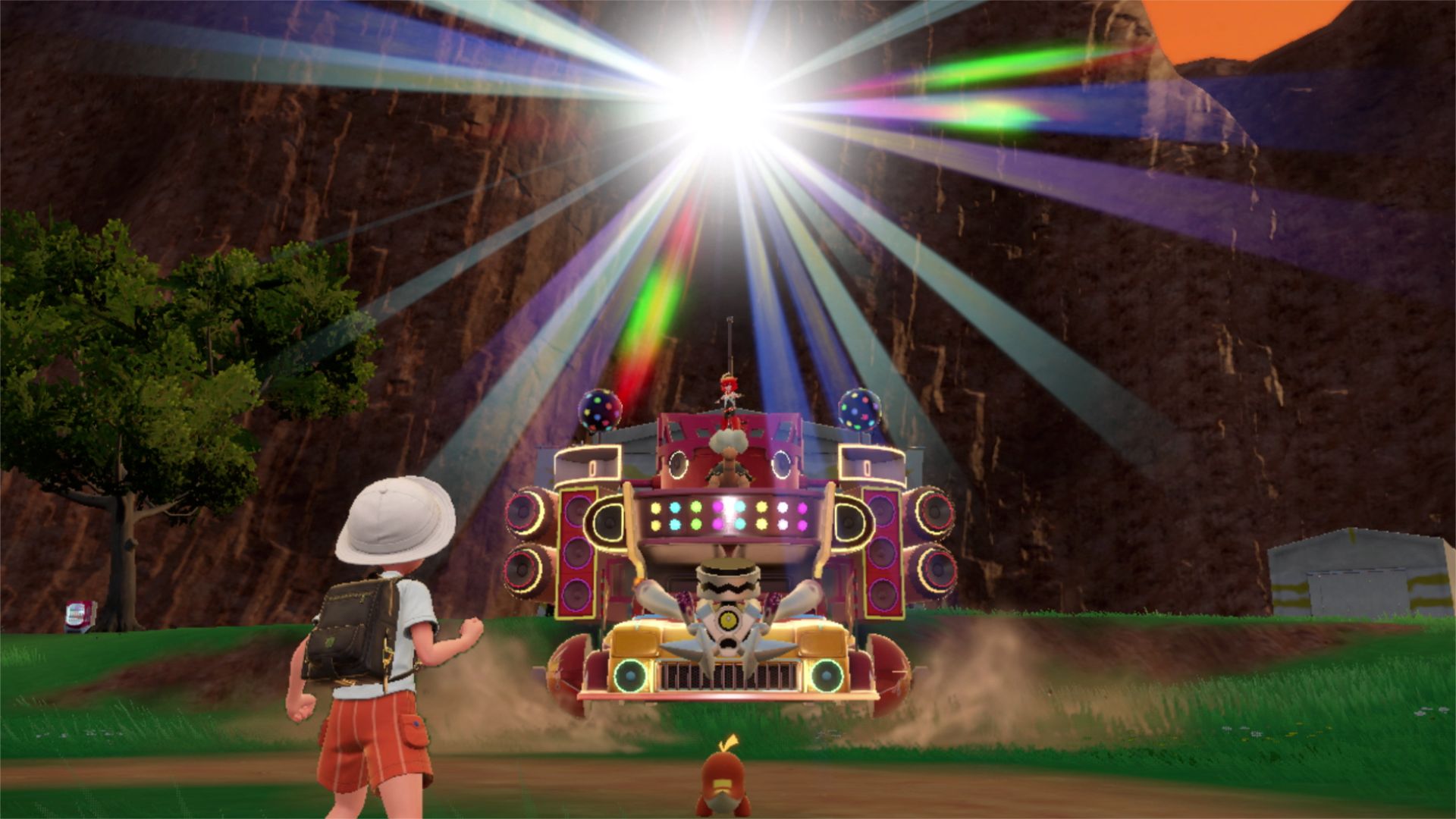Laptop Mag Verdict
Pokémon Scarlet & Violet are two of the best entries into the mainline games — a prototype glimpse into the future of a true, free-roaming adventure. But they are compromised by a barren open world, poor performance, bugs, and a general lack of polish. I can’t help but feel these games were rushed to release, as they definitely need more time in the oven.
Pros
- +
Addictive gameplay loop
- +
Actual free-roaming
- +
Relatable story beats
- +
Hats off to the slap bass guitarist
Cons
- -
Rough visual style
- -
Open world doesn’t feel lived in
- -
Doesn’t take all the best parts of Arceus
- -
Lots of bugs
- -
Lots of performance issues
Why you can trust Laptop Mag
“Great on paper, but a let down in practice.” This is a line that would probably be on my Tinder profile, and it sums up a lot of my feelings about Pokémon Scarlet and Violet.
You see, after the company’s big bet on reinventing the wheel with Pokémon Legends: Arceus (which the team absolutely nailed, by the way), these next entries into the mainline game lineage looked set to take the best bits and expand upon the core formula.
And to be fair to developer Game Freak (and looking at the many hours I’ve sunk into Scarlet), the team has a promising new direction for the series. But man is it hard to love with its technical issues, bugs, and primitive visuals that are so hard to ignore.
Game Freak freaks the formula
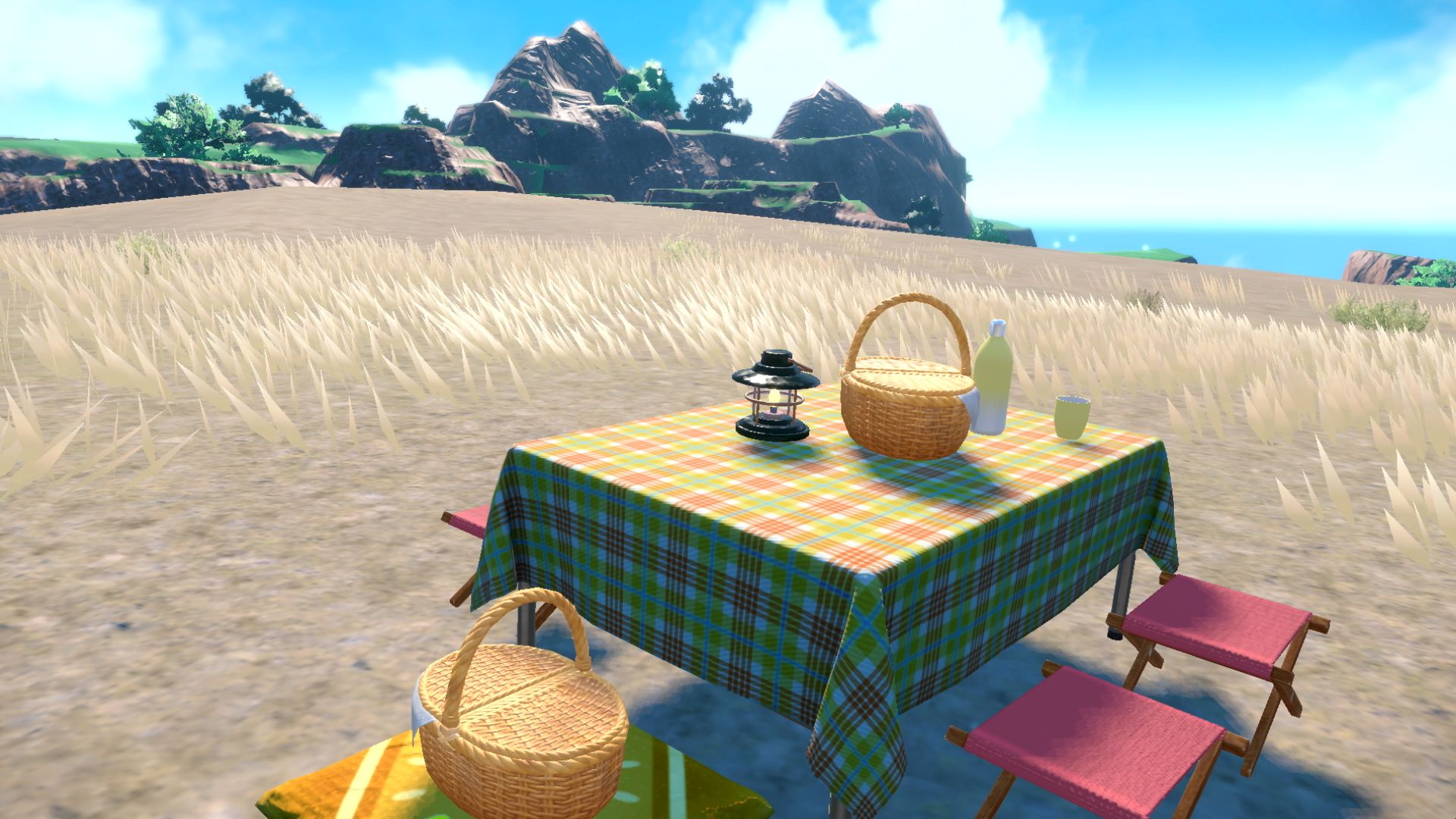
Go anywhere, do anything. It’s something that Breath of the Wild did to perfection. Nintendo captured lightning in a bottle, and Game Freak has gone all in with Scarlet and Violet. It’s an unprecedented level of freedom for a Pokémon game that has refreshed the way I approached this game — providing a new sense of adventure that was missing from having limited areas.
All of this is based in the Spain-inspired Paldea region, where you attend an Academy that is hosting an annual “Treasure Hunt.” The mission is pretty much identical to before: catch them all and become a Pokémon Master, but it is expanded thanks to a great story with moments that do get you in the feelings, a variety of challenges that are explained in ways that are easy to relate to, and a twist that’s predictable, but interesting nonetheless.
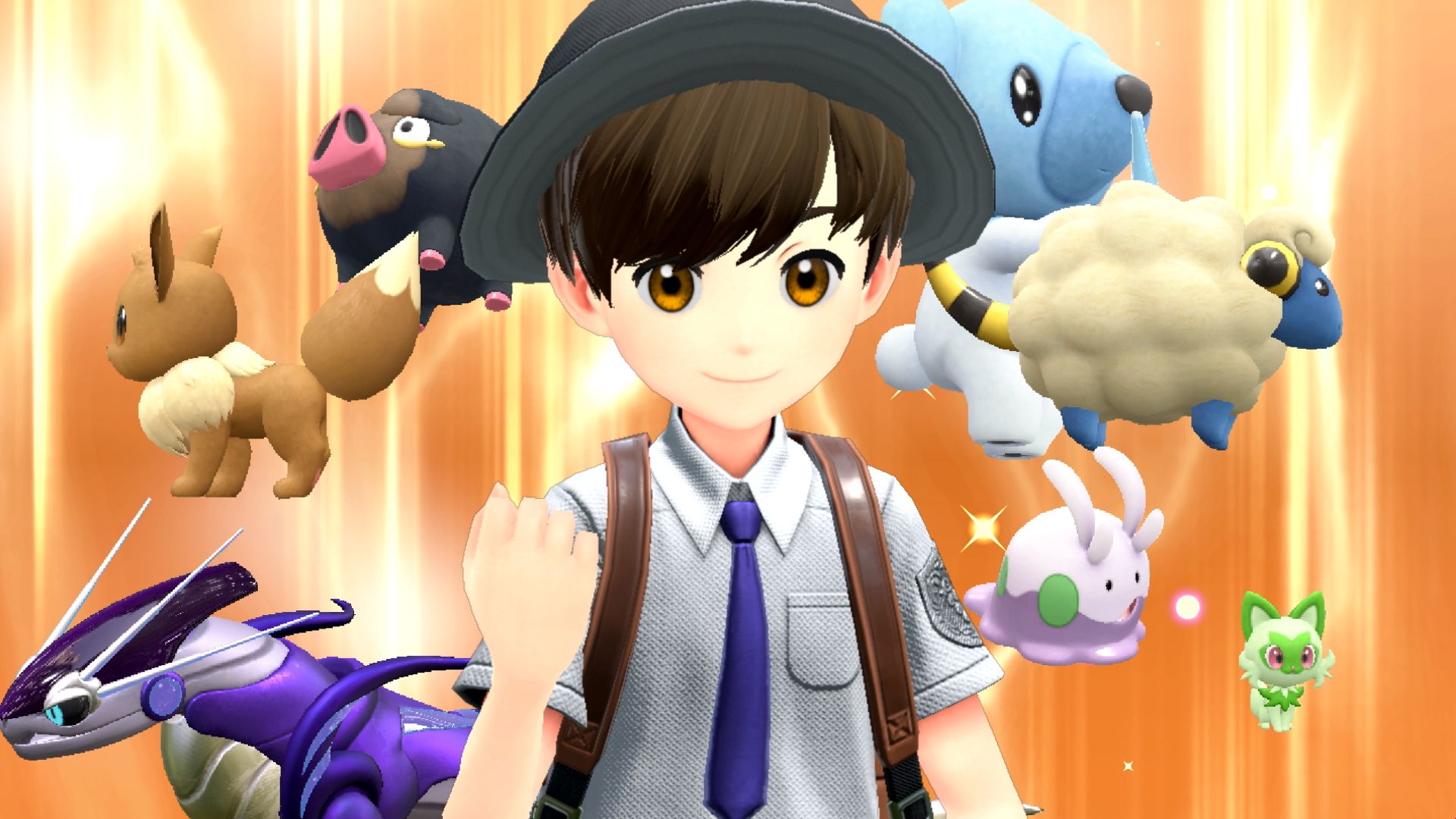
While there is that freedom (you could go with your starter Pokémon and get annihilated by trainers all the way across the map if you want), Game Freak has been careful to implement some text cues that hint towards a structure that you can follow — to level up alongside the growing challenges you face in different regions.
The various areas and towns are vivid and unique with their own personalities. While there are some compromises in the form of repeated store designs and a lack of interiors (outside of some copy/paste Gym receptions and menus to buy food/items), none of this really stopped me from understanding the culture of each place I immersed myself in.
At its core, this is still the fundamentally simple turn-based RPG game that you fell in love with 26 years ago, which is given a new shot of life with a newfound level of freedom. But it doesn’t go quite all the way in its lofty goals.
What’s missing?
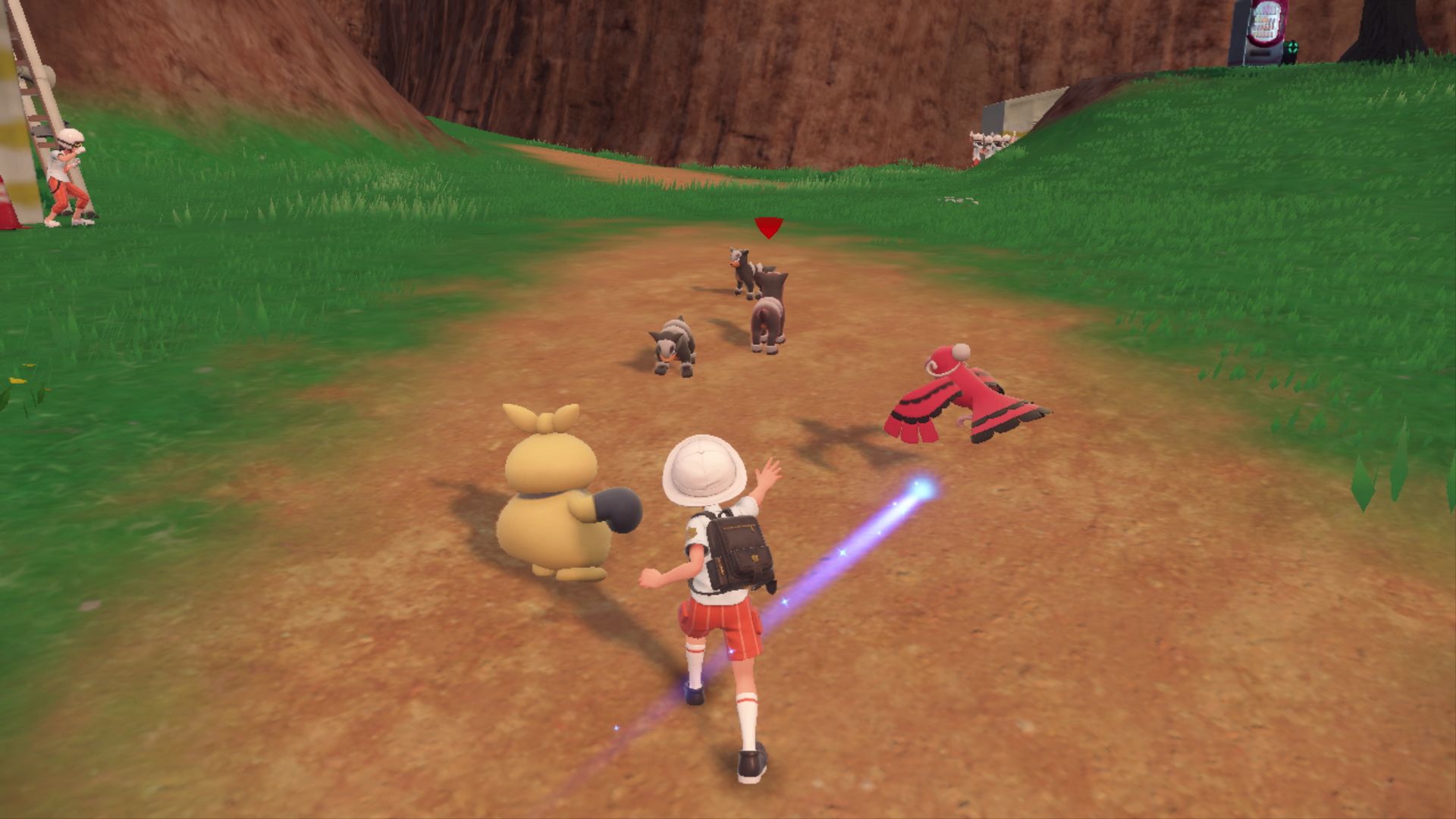
Before I address the elephant in the room (that’s probably T-posing and has fallen through the map), I want to highlight some missing elements that I feel Game Freak should implement from Arceus to solidify this great core idea for the next set of Pokémon titles.
First, some actual stakes and peril for your character. The wild areas should feel exactly like that: wild. You should be excited to explore them, but also be cautious for your safety, just like what happened with the ability for your character to be knocked out in Arceus. Wild animals naturally defend themselves, and the lack of this takes away that idea of a free-roaming world that can give you both pleasure and pain while exploring.
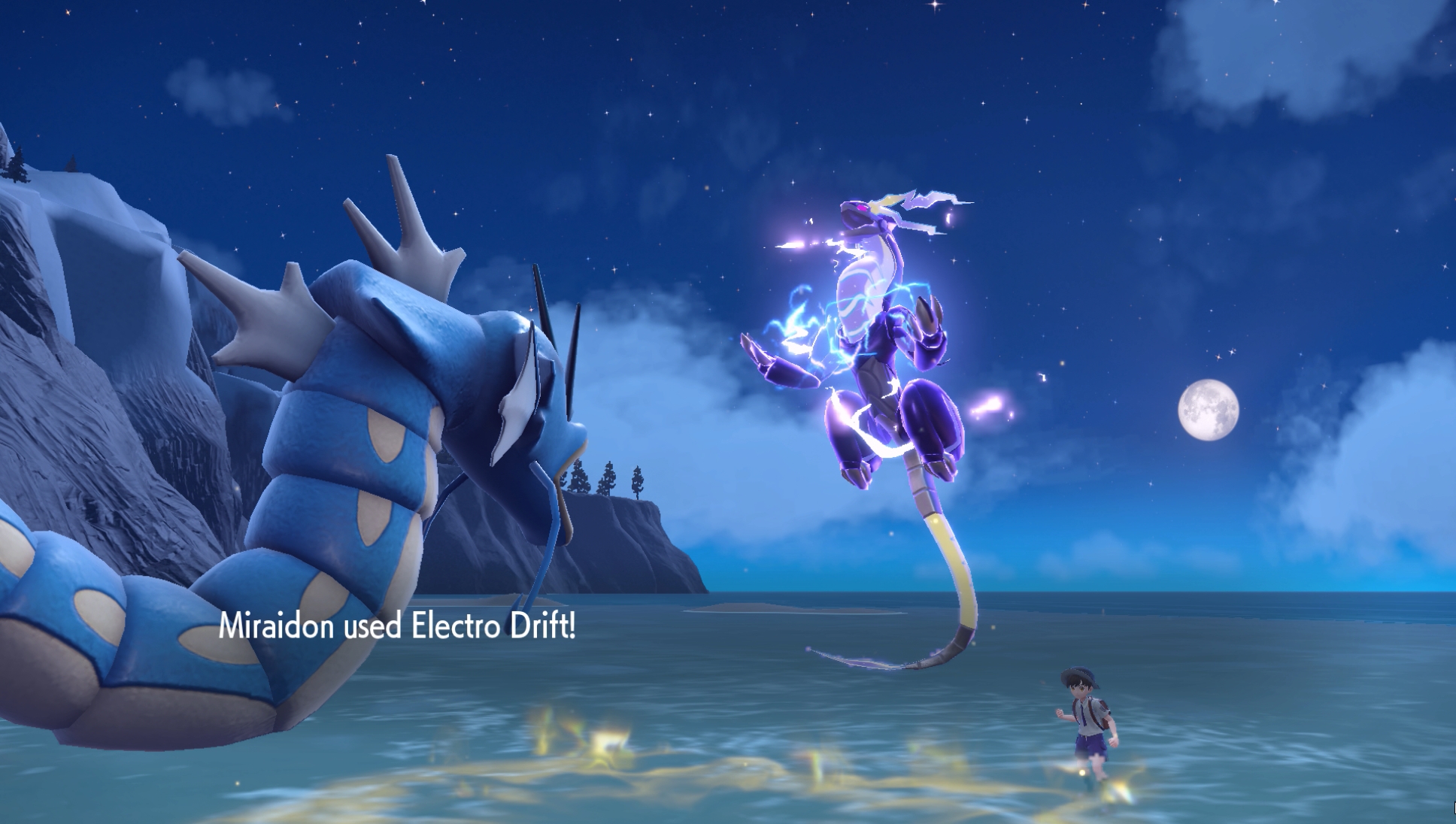
Next, scale back the amount of items available in the wider world. Not to say they have been convenient at times when I found them, but having so many man-made items scattered all over the place does two things:
- Reduces your need to shop for items to the point that your currency is kind of pointless.
- Takes away some of the sense of adventure that Arceus had in the form of collecting natural elements and combining them to craft items.
And for the love of God, please bring back sneaking up to Pokémon and attempting to catch them without battling. This was one of my favorite things to do in Arceus, as it added variation to the exploration part of gameplay, which kept things dynamic. I do miss it in Scarlet/Violet!
It’s not very effective
I can’t let this review end without addressing the thing that everyone has noticed — the performance issues, graphical cutbacks, and bugs.
Let’s breeze through the glitches and bugs I saw:
- My character getting stuck in textures.
- My character falling through textures and out of the map.
- My character getting stuck inside an enemy Pokémon while battling it.
- Poké Balls vanishing after catching a Pokémon and the battle randomly ending.
- My Koraidon mount disappearing, leaving me just floating in mid-air.
- My Koraidon mount falling through the ground.
- NPCs walking through the middle of battles.
- NPC heads spinning and arms contorting.
- Camera clipping through the floor.
- Trainer battles starting without my character throwing out a Pokémon, leading to a long, awkward staredown that never ends until you restart the game.
- And multiple game crashes.
This is all that I saw, but I’ve seen many players share many other bugs and glitches. And let’s not forget the game optimization issues, including the open world areas feeling barren, the environment textures that wouldn’t make a Gamecube sweat, the heavy framerate drops, and very visibly reduced frames on NPCs and world elements that aren’t far away from you at all.
the two types of bugs…the funny and the…terrifying 💀#PokemonViolet #PokemonScarletViolet #PokemonScarlet pic.twitter.com/fCSmt21oTeNovember 19, 2022
To Game Freak’s credit, Pokémon, character, and NPC models have a lot of detail and show flashes of that classic, artistically inspired side of the devs, but it feels as if the devs had their priorities wrong. Rather than applying a balanced amount of attention to detail, they went hard on one thing and the rest is compromised. A lot of this is giving me some serious Cyberpunk 2077 vibes, as it feels like the game was shipped far sooner than it should have been.
And the reason for all this? I think Digital Foundry is onto something when it showed a lot of the shared credits between developers of Arceus and Scarlet/Violet. In most situations, this wouldn’t really matter. It’s standard practice to see some devs work between projects.
But where it gets weird is the fact these both came out in the same year. In any business, to have people flip so quickly to a new project and rush it out the door would always produce compromised results, which is what you see here.
Plus, I don’t really buy into this whole “the Switch is holding this game back” argument, because have you seen what it can pull off in the likes of Xenoblade Chronicles 3 and Zelda?
It’s worth noting that Nintendo has admitted to the problems and apologized for them, with a promise to bring fixes over time, so hopefully what we’ve seen here is ironed out.
Bottom line
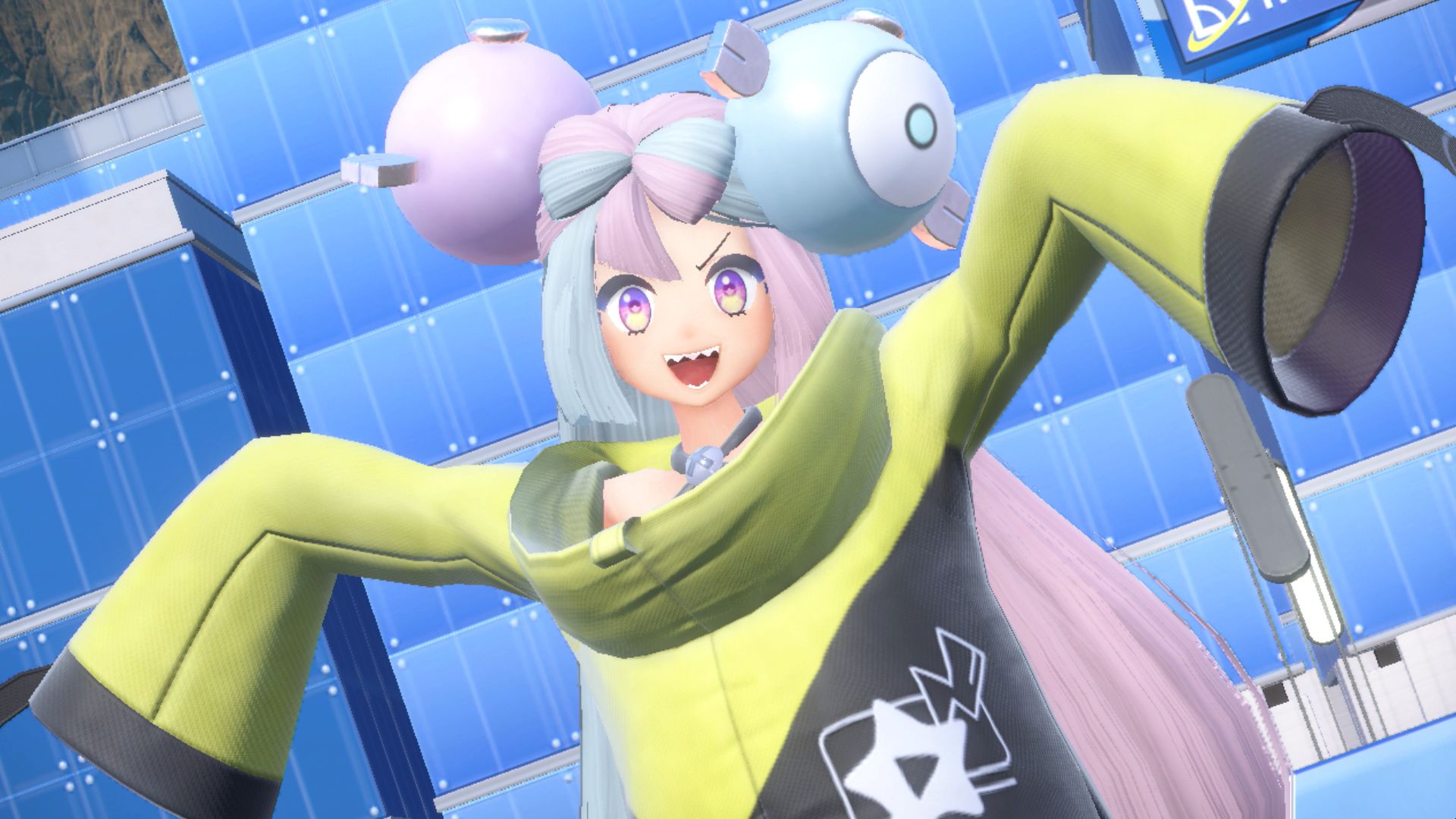
And I say “hope,” because without these at times game-breaking bugs, I could have easily given Pokémon Scarlet and Violet a 4.5-star rating. While not all of my favorite elements from Arceus have made the transition, the freedom inspired by the core gameplay gives the formula a Breath of the Wild-esque breath of fresh air.
The story beats are all the more relatable to the point it will deliver an emotional gut punch, the increasing difficulty and variety of challenge throughout the game makes it addictive, and the true free-roaming gives you a sense of adventure unlike any Pokémon game in the past.
But all of these great ideas feel confined in a game with noticeably poor performance, crude visuals, and bugs you can’t ignore. Pokémon fans deserve better.

Jason brought a decade of tech and gaming journalism experience to his role as a writer at Laptop Mag, and he is now the Managing Editor of Computing at Tom's Guide. He takes a particular interest in writing articles and creating videos about laptops, headphones and games. He has previously written for Kotaku, Stuff and BBC Science Focus. In his spare time, you'll find Jason looking for good dogs to pet or thinking about eating pizza if he isn't already.
